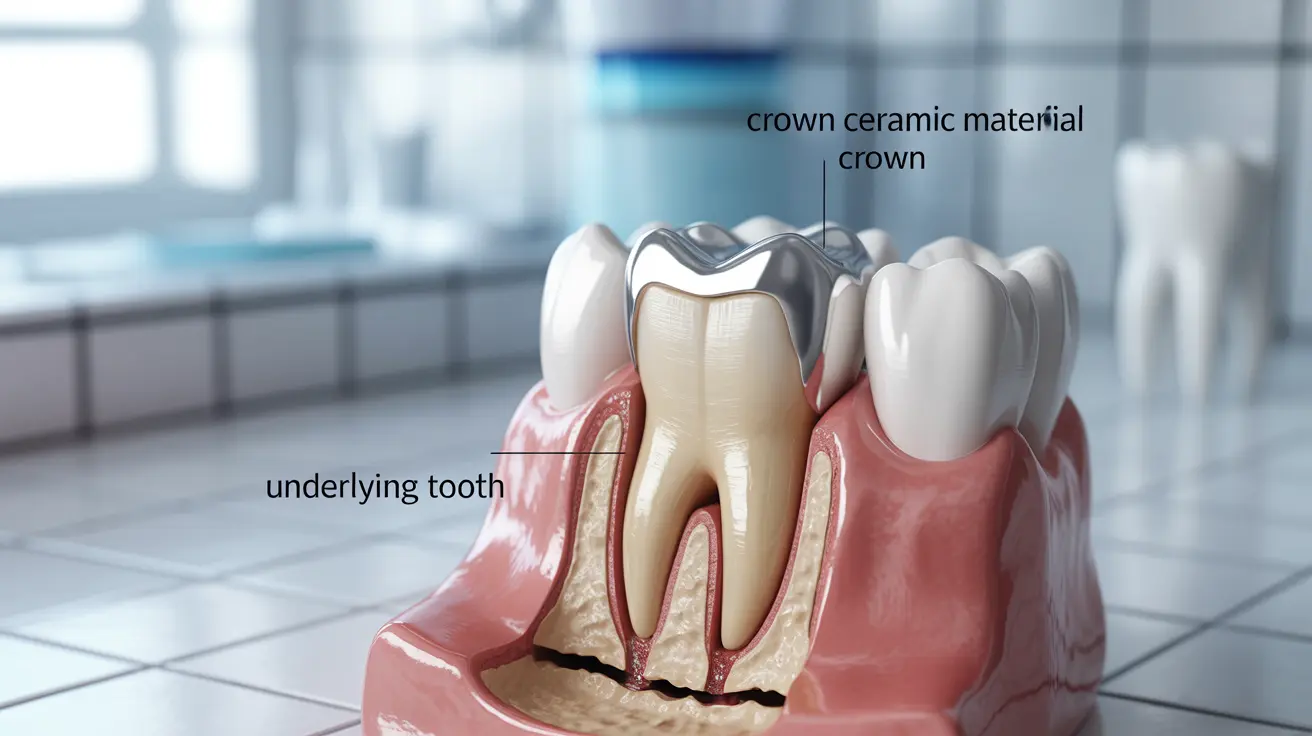Dental crowns are essential restorative treatments that protect and strengthen damaged teeth. Whether you're considering getting a crown or already have one, understanding their longevity and proper maintenance is crucial for ensuring the best possible outcome from your dental investment.
While dental crowns are designed to be durable, they aren't permanent solutions. Their lifespan varies depending on several factors, including material choice, oral hygiene habits, and lifestyle factors. Let's explore everything you need to know about dental crown longevity and how to maximize their durability.
Average Lifespan of Dental Crowns
Dental crowns typically last between 5 to 15 years, though some can endure for decades with proper care. The variation in longevity largely depends on the crown material and location in your mouth. Front teeth crowns may experience less wear than those on molars, which bear the brunt of chewing forces.
Crown Materials and Their Durability
Metal Alloy Crowns
Gold and other metal alloy crowns are renowned for their exceptional durability, often lasting 20 years or more. While they're incredibly strong and resistant to wear, their metallic appearance makes them more suitable for back teeth.
Porcelain-Fused-to-Metal (PFM) Crowns
These crowns combine durability with aesthetics, typically lasting 10-15 years. The metal core provides strength while the porcelain exterior offers a natural appearance. However, the porcelain layer may chip or wear over time.
All-Ceramic or All-Porcelain Crowns
Modern ceramic crowns offer excellent aesthetics and can last 10-15 years. They're ideal for front teeth but may be less durable than metal options for heavy-use areas.
Factors Affecting Crown Longevity
Oral Hygiene Practices
Maintaining excellent oral hygiene is crucial for crown longevity. Regular brushing, flossing, and professional cleanings help prevent decay around the crown margins and protect the underlying tooth structure.
Bite Forces and Habits
Grinding teeth (bruxism), biting hard objects, or using teeth as tools can significantly reduce a crown's lifespan. Wearing a night guard if you grind your teeth can help protect your crown investment.
Diet and Lifestyle
Consuming excessive sticky foods, hard candies, or ice can potentially damage or dislodge crowns. Additionally, poor dietary habits that promote tooth decay can compromise the underlying tooth structure.
Signs Your Crown Needs Replacement
Physical Changes
Watch for visible wear, chips, or cracks in the crown surface. Any changes in how your bite feels or visible damage should prompt a dental consultation.
Discomfort or Pain
Sensitivity around the crowned tooth, pain when biting, or general discomfort could indicate crown issues requiring professional evaluation.
Aesthetic Concerns
Darkening at the crown's base, visible margins, or overall discoloration may suggest it's time for replacement, particularly for front teeth crowns.
Frequently Asked Questions
How long do dental crowns typically last before needing replacement? Dental crowns typically last 5-15 years, though some can last significantly longer with proper care and maintenance.
What factors affect the lifespan of a dental crown? The main factors include crown material, oral hygiene practices, bite forces, grinding habits, diet choices, and the location of the crown in your mouth.
Which types of dental crown materials last the longest? Metal alloy crowns, particularly gold crowns, typically have the longest lifespan, often lasting 20+ years. However, porcelain-fused-to-metal and all-ceramic crowns can also provide excellent longevity with proper care.
How can I care for my dental crown to make it last longer? Maintain excellent oral hygiene, avoid biting hard objects, wear a night guard if you grind your teeth, and attend regular dental check-ups for professional cleaning and examination.
What are the signs that my dental crown needs to be replaced? Key signs include visible damage (chips, cracks), pain or sensitivity, changes in bite feel, darkening at the crown margin, or visible wear on the crown surface.




